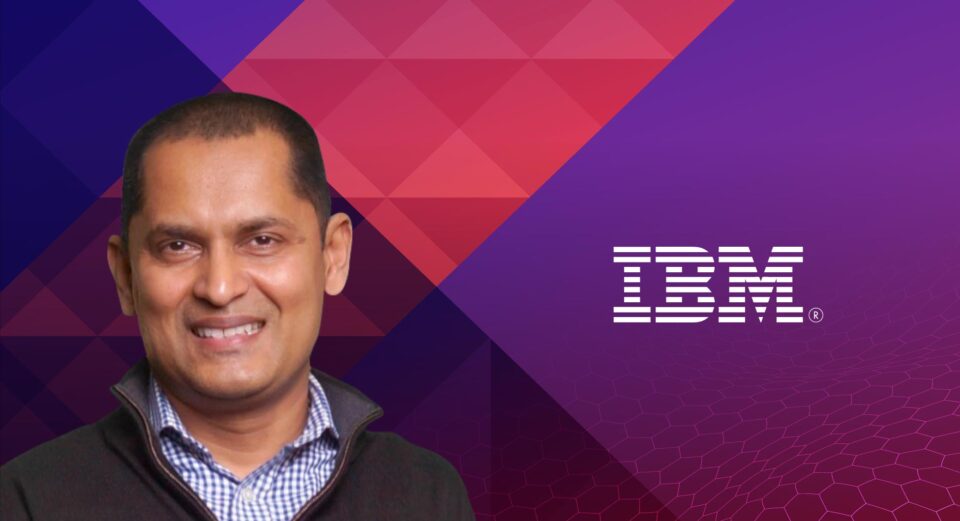“Automation Has Increased the Resiliency of Software and Programming in the Market in Ways That Will Better Prepare the Economy for Future Crises.”
Please tell us about your role and the team / technology you handle at IBM.
I am the General Manager of Automation at IBM, responsible for the global strategy and management of IBM’s automation business.
My work with IBM is focused on expanding our AI-powered automation offerings to build out an integrated, comprehensive suite of IT and business automation software for our clients. At the core of these offerings is our Cloud Paks for Automation, a set of integrated market-leading hybrid cloud software designed to help businesses solve their toughest operational challenges with AI-powered automation.
In line with our announcement of plans to acquire myInvenio, IBM is continually focused on delivering the most comprehensive automation suite possible for our customers through R&D efforts, developing new partnerships across the industry, and investing in new companies like myInvenio.
The acquisition news builds on IBM’s investments to further bolster it’s comprehensive AI-powered automation capabilities for business and IT. This is the latest move in a series of investments, including:
The acquisition of WDG Automation last Summer to provide customers with broader access to intelligent automation through software robots.
The acquisition of Instana last Fall to help customers better manage the complexity of modern applications that span the hybrid cloud landscape.
The launch of IBM Watson AIOps last year, IBM’s AI offering for automating how enterprises self-detect, diagnose and respond to IT anomalies in real time.
Continued updates to IBM Cloud Pak for Business Automation designed to help companies drive innovation across their expanding IT environments and accelerate digital transformation.
These investments reflect our conviction that automation, powered by AI, is the next major innovation in hybrid cloud software and is the key to improving business performance — today and over the next decade.
Also Read: ITechnology Interview with Roy Dagan, CEO and Co-Founder at SecuriThings
What is the idea behind acquiring myInvenio? How would it benefit the customers?
IBM is continuing to expand its AI-powered automation capabilities for business and IT with the planned acquisition ofmyInvenio and it’s sophisticated process mining technology.
Process mining reveals inefficiencies, bottlenecks and tasks that can benefit from automation, to help organizations significantly reduce their operating costs and improve customer service. Simulations can be run to assess automation opportunities to measure the benefits of applying automation at the outset of the automation journey.
By analyzing historical process execution data and desktop behavior, myInvenio technology can help determine where to apply RPA bots, automated decisions, AI models, and other automations to have the most impact on a business. For businesses building automation services, process mining is a critical part of planning. Before we create automation services, we really need to know the right one to build.
More than 40,000 clients are currently using IBM’s AI capabilities to discover the value of their data. This acquisition will provide our customers with software that will not only help streamline business processes, such as accounting, sales and production, that are notoriously cumbersome, slow down innovation and increase costs, but will also help identify which processes to prioritize for the most positive impact on the business.
IBM will now provide customers with the industry’s most comprehensive suite of AI-powered automation capabilities for business automation – including process mining, robotic process automation (RPA), document processing, workflow, and decisions – all built on Red Hat OpenShift.
Tell us how the definition of Digital Transformation evolved through the pandemic. How have IT modernization concepts changed?
Digital transformation is accelerating across industries as companies face increasing challenges with managing critical IT systems and complex business applications that span the hybrid cloud landscape. Automation has increased the resiliency of software and programming in the market in ways that will better prepare the economy for future crises. With IBM’s planned acquisition of myInvenio, we are continuing to invest in building the industry’s most comprehensive suite of AI-powered automation capabilities for business automation so that our customers can become more resilient.
Also Read: ITechnology Interview with Max Ciccotosto, Chief Product Officer at Impact
How does IBM empower customers with Edge, AI, RPA and Computational Storage applications?
We offer our customers a comprehensive suite of automation solutions, including technologies like RPA and edge computing, to help predict future outcomes, automate complex processes and optimize employees’ time.
Last year, IBM acquired RPA capabilities from WDG Automation to apply AI-infused automation to business processes and IT operations, helping to shorten the time between identifying an issue and responding. This is critical, as unforeseen IT incidents and outages, for example, can cost businesses in both revenue and reputation. As a result, Chief Operating Officers, Chief Information Officers, and other business leaders have broader access to intelligent automation through software robots.
What’s the future of IBM’s AI-powered automation? How does it improve the adoption of IBM’s other conventional products / services?
Moving forward, IBM will continue to expand upon our current offerings for customers to create the most robust, fully-featured set of automation technologies for businesses today.
Automation tools and solutions, at their foundation, allow businesses to bring together data and processes to create more intelligent workflows. Tools like RPA, which have been fundamental for many businesses to begin using automation, are just one piece of the equation for creating more intelligent workflows. This technology can be bolstered by new innovations like “digital workers,” which use sophisticated natural language processing to operate more independently and empower human workers to focus on delivering higher-value work.
Also Read: ITechnology Interview with Rohit Tandon, GM for ReadyAI and MD at Deloitte Consulting LLP
Your prediction on the future of Cloud-native solutions:
As we have seen in the last calendar year, adaptability is crucial for all businesses. With a Cloud-native approach, businesses are better equipped to meet customer needs efficiently while overcoming unforeseen challenges. Cloud-native solutions are collaborative, adaptable, innovative, and resilient; perfect for our everchanging world. Automation was on the rise pre-pandemic, but the Covid-19 crisis has very much accelerated what companies are implementing automation for, the speed at which they are doing so, and the scale in which they are actively automating software and IT architecture.
Thank you, Dinesh! That was fun and we hope to see you back on itechnologyseries.com soon.
[To participate in our interview series, please write to us at sghosh@martechseries.com]
Dinesh Nirmal is a C-Level Executive and industry thought leader who leads a global automation business to drive billions in annual revenue. He brings over 20 years’ leadership in data and analytics transformation, leading strategy and execution for technologies spanning machine learning, analytics at the edge, open source, analytics, and database.
Before being named General Manager for IBM Cloud Integration, Dinesh held concurrent roles as Chief Product Officer for Cloud Paks, leading IBM’s hybrid cloud platform strategy, and Vice President of Development for IBM Cloud Integration, where he rebuilt the business to focus on automation.
From 2017-2020, Dinesh led product development for Data and AI, driving IBM’s platform strategy and creating a new business with a market-defining data and AI platform built on open source. Using agile development processes, the platform went from incubation to a production enterprise-ready offering in months, generating significant revenue increasing by double and triple digits YOY over three consecutive years, and gaining favorable analyst recognition. Dinesh rebuilt the business to factor AI into every part of the software and hardware portfolio, and drove new customer engagements with some of the largest enterprises in the world in telecom, manufacturing, and other industries by inspiring a vision of data modernization and AI-driven strategy and providing a practical blueprint to achieve it.
IBM is a leading cloud platform and cognitive solutions company. Restlessly reinventing since 1911, we are the largest technology and consulting employer in the world, with more than 350,000 employees serving clients in 170 countries. With Watson, the AI platform for business, powered by data, we are building industry-based solutions to real-world problems. For more than seven decades, IBM Research has defined the future of information technology with more than 3,000 researchers in 12 labs located across six continents.



